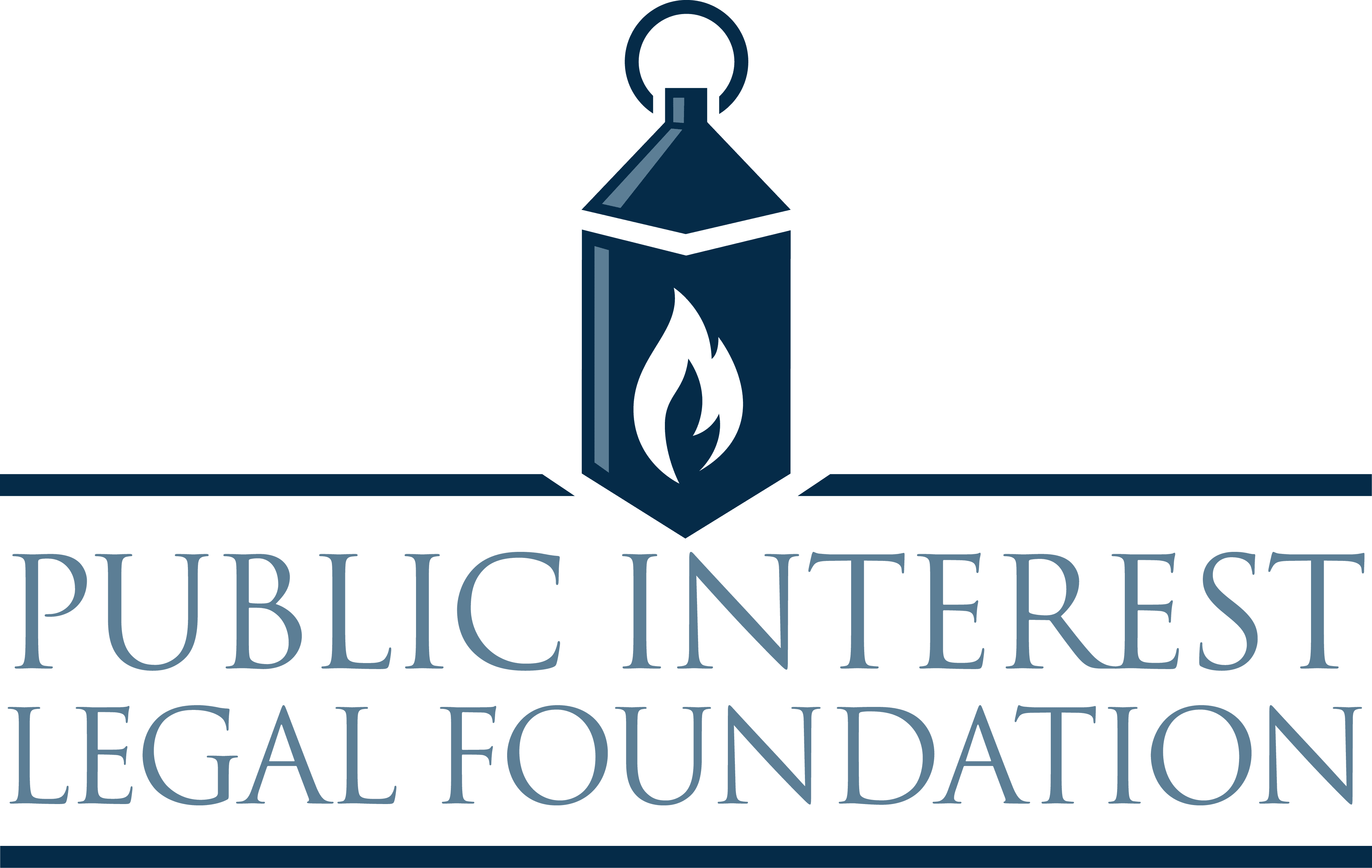(ALEXANDRIA, VA) – January 5, 2017: The Public Interest Legal Foundation (PILF) today released a letter to Senate Judiciary Committee Chairman Charles Grassley challenging previous statements entered by former Massachusetts Governor Deval Patrick in opposition to Senator Jeff Sessions’ confirmation as U.S. Attorney General.
The letter, penned by Public Interest Legal Foundation President and General Counsel J. Christian Adams, alerts the Committee to Mr. Patrick’s mischaracterization of Mr. Session’s record of prosecuting absentee vote fraud as if he were trying to disrupt sacred civil rights endeavors in the Deep South.
“This is a textbook case of how opponents of Jeff Sessions mix imprecise language about civil rights violations and racial overtones to be hurled in the face of a political opponent, particularly one Mr. Patrick has ‘not had direct contact with’ in decades,” J. Christian Adams said. “When the legal and factual errors in this attack effort are laid bare, it should surprise nobody that Mr. Patrick left the country and will be unavailable to testify and defend his letter next week.”
The letter, submitted and released on January 5, lays out five key areas in which Mr. Patrick apparently misleads Congress.
Mr. Patrick misleads readers to believe the ‘Perry County Three’ in Alabama were prosecuted by Mr. Sessions for ‘assisting’ voters. They weren’t
The indictment against Albert Turner, Spencer Hogue, Jr., and Evelyn Turner specifically laid out charges related to mail fraud (18 U.S.C. § 1341) and multiple voting in a single election (52 U.S.C. § 10307(e)). Mr. Patrick’s reference to the right of voters to seek assistance in casting a ballot enshrined in the Voting Rights Act of 1965 is erroneous at best.
Prosecuting voter fraud is not itself an act of voter intimidation.
Mr. Patrick offers the presumption held by unnamed “observers” that federal prosecutors led “a concerted campaign to intimidate” government witnesses when building a case against the Perry County Three. Though he repeats the belief that busing witnesses under the security of federal agents can be frightening for elderly witnesses, Mr. Patrick is careful not to personally endorse the claim, the PILF letter notes.
Mr. Sessions was not a rogue prosecutor – he acted with oversight from multiple DOJ offices.
Due to the nature of the charges, Mr. Sessions simply could not advance the case without specific offices in the Justice Department involved. The Criminal Division, specifically the Public Integrity Section, Election Crimes Branch underwent several layers of review and oversight before moving further. Mr. Patrick, a former Assistant Attorney General for Civil Rights at the Justice Department, omitted these facts.
If Sessions’ advancement of the case was as faulty as Patrick alludes, why did the Court refuse to acquit the defendants from the outset?
Mr. Patrick’s foundational attack against Mr. Sessions’ judgment rests on the idea that the prosecution against the Perry County Three should never have been litigated at all. It is curious that Mr. Patrick, a member of defense counsel in the case, omitted the fact that United States District Judge Emmett Cox found the underlying legal theories for prosecution plausible and denied a request to acquit the defendants when asked.
Patrick fails to remind Congress that the defendants offered to enter guilty pleas for the misdemeanor election crimes.
For such an allegedly bizarre criminal prosecution to be brought, it is curious that Mr. Patrick fails to remind the Committee that the defendants initially offered to plead guilty to the misdemeanor election crimes. What kind attorney would advise their client to take that action only to later caricature the episode as an example of “quasi-judicial activism” on the part of Mr. Sessions decades later?
The PILF letter also reminds the Committee that absentee ballot fraud has not only proliferated in the decades since, but academics and election law experts of nearly all ideological persuasions have come to mutual agreement that it is the most common.
Adams urges that Mr. Sessions should be applauded for his work to protect the voting rights of all, regardless of race, and encourages the Committee to not be side-tracked by testimony that “misses the mark” or be given further consideration.
Read the letter submitted to the Senate Committee on the Judiciary, here.
Public Interest Legal Foundation (PILF) is a 501(c)(3) public interest law firm dedicated to election integrity. The Foundation exists to assist states and others to aid the cause of election integrity and fight against lawlessness in American elections. Drawing on numerous experts in the field, PILF seeks to protect the right to vote and preserve the Constitutional framework of American elections.
###
Sessions Nomination Letter From J Christian Adams to Senate Judiciary Committee by electionlawcentercom on Scribd

